 - Where is it? Visit the map
- Where is it? Visit the map
- Why a Solar Ecovillage?
- The philosophy of the project
- Prices
- Are you interested in buying?
- “Ready to sell” houses
- Appendix 1: know exactly what you’re buying
- Appendix 2: The Ecovillage amplifies opportunities
- The Ecological House video
- Notes on ecological housing. The example realized by Alcatraz.
WHY A SOLAR ECOVILLAGE?
Today hundreds of thousands of people throughout the entire world choose to live in Ecovillages, and for decades have been experimenting a different quality of life which is definitely superior to living in highly polluted city centers.
After a year of debating, bureaucratic documentation, surveys and projects we’re finally ready to go.
Within 470 hectares of land, the Libera Repubblica di Alcatraz park will finally host an ecological village, its Solar Ecovillage.
It will be one of the most innovative projects regarding ecotechnology, and we will commit ourselves to making it one of the most beautiful and culturally lively villages ever seen.
An extensive valley which opens upon a breathtaking panorama of green and trees where nothing besides nature is visible to your eyes; no noise, no traffic, no cars. This oasis of true peace is just 12 km from the closest pharmacy, bank, elementary and middle schools as well as the local supermarket, another 2 km and you can access the E45 Orte – Ravenna clearway. The ecovillage distances 30 km from Umbertide, and 40 km from Perugia.
Valleys and hills where woods cover the land. Here and there you can come across olive groves , meadows and pastures, five groups of houses and bungalows.
The distance between the groups of houses goes from 400 meters to a kilometer, therefore they are rather close, but the environmental impact is reduced to a minimum because you can barely see the houses on so much surrounding land.
You can choose between a rural stone house with highly efficient energy installations or a futuristic home entirely built with class A insulated lamellar wood. You can choose between a house constructed on the top of a hill, on a mid-hill position, along the banks of a stream, amid woodlands. Big houses or super insulated 40 SQMT bungalows or even just a pitch for your caravan. Every home has a small garden, a vegetable patch, an olive grove and at least 2000 SQMTS of woodland.
Cohousing
Buying a share of the project you also buy part of the community shared structures such as the outdoor and indoor swimming pools, the party or ball room, garden irrigation, photovoltaic solar power plant, and the hydraulic plant.
The shared properties include 200,000 SQMTS of woodland and olive groves.
The idea is that this advanced cohousing not only will allow homeowners to save money and reduce living costs, but it will also enable them to gain a profit that could cover “condominium costs”.
We thought of houses that can be heated using low energy consumption and that can make the owner earn money, instead of spending it.
Here you can produce your own energy with solar panels, cultivate your own vegetable garden and live in a place where you can organize cultural events, courses, shows and exhibitions.
In the village, living is thought like a social and supportive experience: this concept makes the community willing to plan and organize something together. Obviously, this is an opportunity, not compulsory.
What’s more, Banca Etica is available for financing your project.
THE PHILOSOPHY OF THE PROJECT
There’s nothing ideological here. Basically, anybody who buys a house can run it however he/she wants. The only thing we expect is that everybody should respect one another and behave in a polite manner.
All decisions will be taken by the habitants, exactly like in a condominium. Alcatraz contributes to the building and the designing work only; it won’t stay in the village after its completion and, most of all, it won’t get any kind of land revenue.
However, the Ecovillage borders are next to Alcatraz, so residents will have the chance to interact and collaborate with the organization. Obviously, this is something everybody has to agree with and, again, it is not compulsory.
A different economy, a new conception of “house”
Our plan is to create a different kind of house that can reduce energy consumption and condominium costs to the lowest level. What is more, the owner can save money through several activities, like growing fruits and vegetables, gathering wood, salad, medicinal herbs and mushrooms from the surrounding woodlands, and using the shared washing machine.
Further information
HIGH SPEED INTERNET CONNECTION
Telecom (the National provider) has already installed a repeater with 26 high-speed lines. Alternatively, a specialized company can provide a wireless connection.
CONNECTIONS
In Umbertide, 30 km from the village, you can find the closest hospital, cinema, theater and high school; all of them can be reached driving down a no traffic light street.
Perugia, 45 km away, hosts the nearest regional hospital, several high schools, academic faculties and important libraries. If you want to get there you can take the 4 lane clearway.
Within 15 km from the village you find the elementary and the middle school, a bank, a supermarket, a pharmacy, a veterinarian, a farmers’ cooperative, a petrol station, a newspaper agent and tobacco shop, a hairdresser, restaurants, pizzerias, a tennis and a soccer field, the local sport center and a council house.
WEATHER
The weather is typical of the hills: usually there’s no fog, but, if there’s foggy weather, you’ll admire a “sea of clouds”, just like in the traditional Japanese pictures.
WATER
Alcatraz will build a dike in the Resina torrent, a water storage (restoring the one of the mill) and a system that will provide, through sand, carbon and chlorine techniques, filtered and drinkable water.
In order to optimize water consumption, rain will be treated with the chlorine system: it won’t be drinkable, but it can be used for toilet flushes. The fitodepuration, thanks to its 5 different structures, will reuse the water coming from the flushes to irrigate vegetable gardens.
PRICES
You can buy either a turnkey home or a rough construction.
The cost per SQMT can vary from 2000 to 2800 euros and it covers solar and thermal panels, a 2000 SQMT field and the condominium properties (streets, parking area, 200 thousand SQMT field - nice woodlands, olive groves, meadows -, a contribution for the ball room, the laundry, the indoor swimming pool, water systems, shared photovoltaic system – in addition to the individual ones).
Price depends on the features you choose.
The cost for the notarial deed and the installment payments will be decided individually: price can vary whether the house is a principal or a secondary residence, an individual or a company purchase.
Banca Etica is available for the project financing, as well as to supervise and check the adequacy of the prices. A cooperative will be in charge of the work.
If you’re interested in buying, we’ll provide you with the following information:
detailed description of: single flats, houses, characteristics of tiling, shutters and heating systems;
description of the cooperative work and the individual notarial deed;
about the cooperative statute;
about the loan (in general).
Below you can find the map of the flats, the entire Ecovillage and the local area.
ARE YOU INTERESTED IN BUYING?
If you’re interested in the project, please send your address and your preferences to [email protected].
Otherwise, if you want to know more about the available buildings, phone this number: +39 075 9229776 or +39 075 9229913.
You can come and visit the Ecovillage whenever you want. You can choose the house you prefer and reserve it paying a deposit; if the project doesn’t start within June 2011, the deposit will be given back.
Once you've decided the building features you prefer (for example the internal division of the flat or the house covering), you can join the cooperative and sign the purchase contract, paying a first installment that covers 20% of the entire sum.
Ecovillage graphic projects and house plans. Click the images to enlarge.
The “Mulino” (Mill) group: 2 big houses, divided into flats, and a little single family house
We named it Mulino because (guess what?) there’s a real mill, with two paddles and two millstones. It’s very small and old, vertical axis, and it used a technology that, according to the History of the Boringhieri Technology, was discovered in the year 100 B.C. The mill was used in poor areas of Umbria and Provence until 1950s, like our Mulino.
During the medieval period, it was run by food smugglers. Nowadays it is still possible to see the ruins of the walls of the ancient furnace, situated behind the big house of the Ecovillage. Here, the no man’s land between Perugia and Gubbio, people didn’t follow any specific law. Residents used to make their own flour and to cook rooftiles, important goods on which people had to pay a lot of taxes.
The mill, potentially, could be restored and work properly.
There are other facilities too: the water storage (that brings water to the village), a new house, on the other side of the torrent, and two restored buildings (a small stable and a house). A pedestrian bridge will link together the two sides of the torrent.
The constructions are made up of 11 flats, available in a various range of areas.
However, these buildings need energy efficiency improvements (16 cm thermal insulation, new solar and thermal panels) and other modifications that will take 6 months of work from their reservation.
For a better thermal efficiency, it is possible to install three pane gas-filled windows and other specific features.
The “Laghetto” (little lake) houses
They’re situated on a little upland at the top of the hill. In the area, a very cosy place, you can find a big building, two or three smaller houses, and a lake.
Homes, divided into 6 flats, will be made of a particular kind of lamellar insulated wood, daubed and decorated. They’ll be highly thermal efficient, provided with three pane gas-filled windows.
We expect to complete this project within 8 months from the beginning of the work.
The “Oliveto” (Olive grove) Area
This is the area where you can find the majority of the houses.
At the moment, there’s a ruin with a couple of minor attached buildings (the Capuzzola Houses), a little isolated house (Capuzzolina) and the structure of a building that will have big windowpanes pointed towards the south.
Between them you can find olive groves and meadows: here we’re going to build 2000 SQMTs of first class efficient lamellar houses, daubed and decorated with big wall paintings.
In the middle of this place we’re going to put a little pedestrian square, a fountain, a 150 SQMT ball room, a shared laundry and a heated indoor swimming pool. All the residents will be the owners of shared facilities, therefore everybody has the right to use them.
What’s more, we committed ourselves to creating a bar, a bazaar, a restaurant and an 8 room hotel. These structures, that require a longer period of work, will be run by an independent company (different from the cooperative). However, everybody will be eligible to buy a part of these buildings.
We expect to complete these highly efficient energy houses within three years, even though this is only a general estimate. They’ll be provided with three pane gas filled windows, solar and thermal panels. Most of them will have a cellar too.
Around the square, there’ll be 4 single family homes and unconventional houses, made of daubed straw, raw earth, etc., that can offer a high standard of comfort and a very good energy efficiency.
These houses are already available for purchase. Buy one of them within November, and you’ll decide the subdivision of the interiors without additional cost.
The Capuzzola House (Oliveto Area)
This area is made up of a big house (divided into 5-6 flats and a tower), and two small family homes. The first construction will be made of stone and daubed lamellar wood, while the second one of lamellar wood only. Anyway, both of them will be highly energy efficient, provided with three pane windows, solar and thermal panels.
Work will be completed within 8 months since its beginning.
The Solar House (Oliveto Area)
This building is located at the top of a valley, surrounded by kilometers of green land and 2 hectares of black and white truffle field. Its structure – 2 floors with wide French windows- is made of reinforced concrete and will be completed with highly insulated refurbishments, solar and thermal panels and three pane gas filled windows.
The house, divided into 8 flats of different areas, will be completed within 8 months since the beginning of the work.
The Gnome Houses
We’re also going to build 46 SQMT lamellar wood houses: highly insulated, daubed and decorated. This particular project will take at least 3 years and we can’t provide any further information about it.
Additional condominium features
We planned to build a place for a barbeque, small fireplaces where to have a grill or sterilize food jars, a wood stove and open-air tables where you can either cook or eat.
The 6 vegetable garden areas will be provided with an automatic irrigation system and a small storeroom for the tools.
The Bosco (Woodland) Area (under construction)
The Mayor of Perugia authorized the construction of 16 self-building houses, each one 89 SQMTs wide. The council committed itself to transforming this agricultural area into a building land as facilitation for people with low income (18 – 28 thousand euro per year) and have been living in Perugia for at least 12 months.
The features of these buildings will be decided by the self-building workers.
Technical reports about the first restored structures
Here you can download and find all the information about these 4 buildings.
Mulino House Technical Report
Solar House Technical Report
Rural House (Yellow house) Technical Report
Laghetto House Technical Report
Appendix 1: know exactly what you’re buying
We want the people involved to know what we planned to build and how. It’s good to know the terms of the contract, the features of the buildings and the general principles of the company.
Therefore, we scheduled a few meetings where you can visit the Ecovillage and join our conferences about Bio-Architecture, energy efficiency, thermal insulation, heating systems, solar panels, wind turbines and water depuration. During this tour we’re also going to guide you through highly efficient buildings, solar panel systems, fitodepuration structure and the Alcatraz heating systems, which enable us to produce more energy and biomasses than we need.
At the end of the meeting we’ll provide you with further information about our technical solutions, the properties of the materials and the management of our heating system, the water, the electricity, the sewers and the irrigation.
The method we’ll be following to build the Ecovillage is unique. You can also get information about the approvals we obtained; in particular, the one regarding our economic balance, which is regulated by Banca Etica in order to ensure a fair price.
Who’s going to build the Solar Ecovillage? (Is this a safe purchase?)
Banca Etica committed itself to supervising and assisting the project through the direction of a builders’ cooperative. When a person acquires a house, he/she pays a part of the shared properties as well: this means these properties will be managed by a cooperative formed by all the home-owners.
Sergio Los and Natasha Pulitzer have got 40 years of experience of Bio-Architecture. They analyzed our territory and designed the project according to the architectural and the thermal criteria suitable for the Ecovillage weather.
Professor Maurizio Fauri – University of Trento- analyzed the energy efficiency.
The water system was built according to the directions of a famous specialist, Pietro Laureano.
In addition, all the decisions were approved by our Libera Università di Alcatraz, which has 30 years of experience of constructions and restoring.
Service Legno and Safra are two reliable building companies that worked for Alcatraz and other customers. We appreciated how they worked, therefore they’ll be in charge of building the Ecovillage too.
Energia Arcobaleno will be the Ecovillage quality brand.
What is Alcatraz
The Ecovillage is not Alcatraz. The “Libera Università di Alcatraz” is a cultural center where people can sleep, eat (very well), attend courses, etc. Workers don’t live in Alcatraz, but in the surrounding towns. We’re not a sect: we love cooking, polite manners, laughter therapy and, sometimes, even common sense.
We don’t know therapies that give solutions to problematic issues like death and pain, but we firmly believe that united we’re stronger.
We strongly believe in the few relevant points of the Alcatraz statute (unmodified since 1981):
Life is good but spaghetti can be improved.
Violence is useless, but, most of all, tiring.
If someone slaps you, try to dodge it.
Universe loves who sleeps.
Together we’re stronger, alone you’ll get bored.
Even ants have their rights.
If you want to know more about Alcatraz, see the video we show our guests called "Questa casa non e' un albergo" (this house is not a hotel) (http://www.alcatraz.it/questacasa.html).
We ensure, again, that the Ecovillage is an independent structure, with no links to Alcatraz and vice versa.
However, we believe life is the art of meeting people. Therefore, we’ll be happy to collaborate in a friendly and mutual manner, in order to combine together everybody’s qualities.
APPENDIX 2: The Ecovillage amplifies opportunities
Becoming a good communicator and taking advantage of it.
About condominium rules and regulations.
I think we should try to create a cooperative environment, a community where people have the chance to collaborate voluntarily and with no obligations. Therefore I can’t see the necessity of scheduled homeowner meetings, shared expenses, shared childcare or other services.
What’s more, I believe homeowner meetings may stimulate “leaderism”, conflicts, disagreements and separations.
I’ve been living in Alcatraz for 30 years and, during this long period, I learned people are able to rule themselves spontaneously. I think we tend to collaborate naturally, therefore creating restrictions is a mistake.
I believe in the importance of couples and their work to improve the relation. A group is an amount of couples. This concept stimulates the process of decision making.
For example, in Alcatraz a group of 15 people works together, brings children to school, buys wood, organizes events and parties; all of them without scheduled meetings, restrictions, obligations and shifts.
At the same time, I don’t think people should buy goods together. Obviously, when everybody is using the same washing machine and is having birthday parties in the shared ball room, I think sharing some expenses could become natural too.
As well as having your own little internal trade (cookies vs. tomato sauce).
Anyway, I must say sometimes this kind of trade is confusing and difficult to manage. In Alcatraz we exchange our goods without keeping track of it, and everybody decides the person he/she wants to exchange things with: obviously, who doesn’t behave generously or fairly won’t be asked to join us. As I said, everything is based on couples.
In conclusion, I’m writing these words because I don’t want anybody who buys an ecovillage house to feel obliged to make certain decisions.
In addition, I think that if we rule our behaviour we may risk to share the village with people obsessed by restrictions or with someone who would like to establish a communist society overnight and doesn’t think about everybody’s limits or needs.
It’s too easy to consider this project as a religious and ideological commune, an experience that could cause but pain and resentment.
The Ecovillage is not a commune or a therapeutic community. It’s a VILLAGE, with its fundamental forms of democratic decision making. For example, when homeowners decide which works have to be done every year, then they shouldn’t need scheduled meetings anymore (except for extraordinary repairs): works could start automatically.
I also believe they shouldn’t determine the amount of hours a person has to work on maintenance or other stuff. This method causes obligations, disagreements about the quality of work, arguments: definitely not good!
I suggest following this method: if homeowners decided something has to be done, then they could ask for an estimate; at the same time, if anybody from the Ecovillage was willing to do it, then he/she would be responsible for that, like an independent company working for the village. I think this method could make everything easier.
But, who should be the one asking for the estimate and supervising the work? He/she could be a kind of property manager, paid for this job, and living inside or outside the village.
I believe paying workers is a way to avoid arguments and problematic situations.
It’s easy: if you employ a person, for example the property manager, and you don’t like how he/she works, then you can always hire someone else.
On the other hand, if the manager is a volunteer then he/she could pretend gratitude, while residents could feel a kind of guilty when asking for better work to an unpaid person.
It’s a total mess. You waste time (the most important thing in our life!) and people start arguing and being angry with each other.
However, it’s useful to know that ecovillage people may be paid with either euros or timebank cheques. It doesn’t matter how, but work has to be fairly paid.
The simpler a society is, the better it works.
I believe in very few fundamental rules; for example: you can’t wake me up in the middle of the night because you’re in the mood for loud music, as well as you can’t throw your rubbish in the fields or disturb me anyhow.
In order to be fully respected, restrictions must be made for very few fundamental prohibitions.
We have the right to imagine a perfect village, but we need to act practically, aiming to simple goals, instead of planning homeowner meetings.
Nowadays, nowhere in the world, except for religious sects, it is possible to live with 200 people inside a place like the Ecovillage: ecological, surrounded by nature, with shared essential structures and energy self-production.
There’s no other condominium that, if well managed, makes you earn some money instead of spending it (for fixed energy expenses, maintenance work), and there’s no other place specifically projected to facilitate human relations and collaboration.
What’s more, we planned to facilitate people with low income through affordable prices, good conditions of purchase, collaborations.
The community, independently, can decide whatever it wants: it could happen that everybody gets crazy and residents establish that men and women have to wear skirts and pea green clothes. The fundamental thing is that it has to be decided by a unanimous vote. Why? Because there’s no clause in any contract where it’s written that you have to respect the restrictions decided by the majority of the village. Except for the fundamental rules: they won’t be written in the contract, but they’re established by the State law.
Making noise, talking or shouting loudly are not a crime. There’s no need to write this in my group of internal regulations, but it could be useful to reclaim some basic condominium rules. Anyway, these are “natural” one, not special: if I tell you something obvious it doesn’t mean I’m establishing a new rule. It’s completely different.
How should I pay the mortgage back? What should I do for a living?
It’s a very complex issue.
First of all, we have to consider everybody’s skills. We could dream about giving everybody a job, that people from all over Europe (or Papua New Guinea) would come and visit us, that we could organize meetings and parties, publish books and write blogs, sell our windmills and solar panels, make medical herbs and shampoos with woodland flours.
But these are dreams, and people have to consider real things, like tiredness, inexperience, wounds…
If you want to know more about potential jobs, click http://www.jacopofo.com/?q=node/2343 (AAA Progetto autoimpresa rivoluzionaria offresi).
For example, here http://www.jacopofo.com/node/6418 I tried to give some information about working in bio-agriculture. On the other hand, a big part of the responsibility relies on people’s communication and working skills.
Myself, I can talk about this issue during the meetings we scheduled to explain the project.
THE IMPORTANT THING IS THAT HERE A PERSON CAN FIND A HOME. THE VILLAGE COULD HELP TO FIND A JOB, BUT THIS IS NOT THE FIRST AIM OF THE PROJECT. IT COULD POSSIBLY BE ITS “SIDE EFFECT”, ITS CONSEQUENCE, WHEN, FOR EXAMPLE, A PERSON IS ABLE TO WORK ON THE OPPORTUNITIES HE/SHE FINDS INSIDE THE ECOVILLAGE.
Ecovillages are an alternative to metropolitan cities.
Ecovillages offer a life in touch with nature.
Ecovillages facilitate human relations.
Ecovillages are economically convenient.
Ecovillages are clean.
Ecovillages are nicer.
Jacopo Fo
Notes about ecological houses. The Alcatraz example.

1)This is the basic structure of the new thermal efficient house, built with lamellar wood and covered with short layers of reconstructed stone. It’s thermal insulated and provided with ventilated walls and roof.
You just need a crane and the structure, as you can see from the picture, can be set-up in a few days.

2) This is the new high efficient house hosting Alcatraz. In the background you can see the valley where we’re going to build the Ecovillage.

3) The greenhouse is pointed towards the south. Therefore, it facilitates heating, it makes you save money and it offers rooms with breathtaking panoramas.

4) Here you can see the inside of an unfinished construction, where we’re going to put 2 cm of insulation, all the wires and the pipes. In the end, everything will be covered by a natural pine wood wall.
The outside will have 16 cm of thermal insulation and it’ll be provided with ventilated gap, panels, wire mesh, concrete, glue and regenerated stones.

5) Underfloor heating enables you to cover a wide area. Unlike traditional radiators, where water needs to be warmed up to 60/70 degrees, here you can keep it under 45 °C and save quite a lot of money.
Tag: eco villages ecovillages

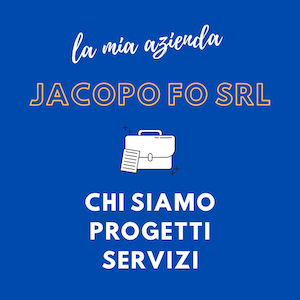
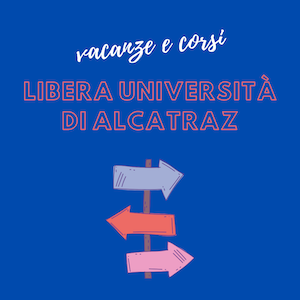
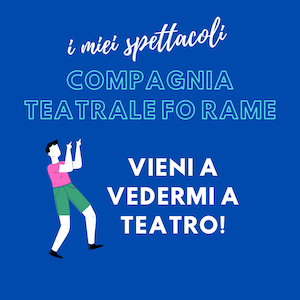
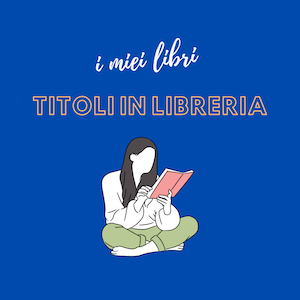
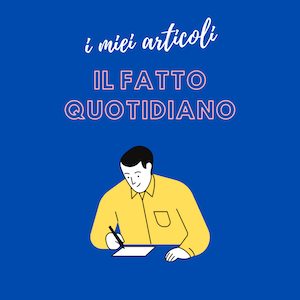
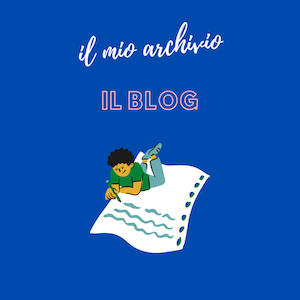

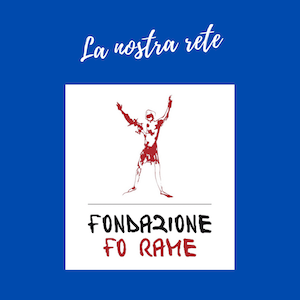
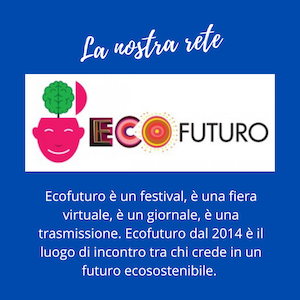
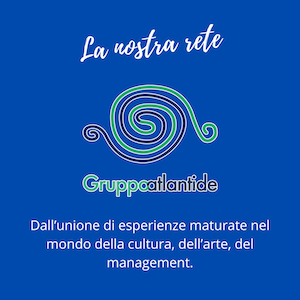












Commenti
Does anyone know where I can
Does anyone know where I can find the feed in tariffs system for renewable energies in Spain? I need as much as possible - (if there is one for this) solar, wind, biomass, hydropower and biofuels, etc.